By Damilola Omolayo
Alhaji Akanni Yinka Quadri is one of the veterans in the Nigerian movie industry. He debuted as an actor in 1977 and has featured in over 100 movies. In this interview with Saturday Sun, he speaks about his acting career, advice to newbies in the industry, and a recent health scheme floated by the Lagos State government, amongst others.
In 2023 the Lagos State government unveiled a health scheme for filmmakers, what is your view on this?
I feel so elated about the latest development by Lagos State government. The health insurance scheme for actors is an admirable giant stride. It is an unfortunate situation those Nigerian actors who have worked for years but cannot afford their medical bills when they fall ill. Our members will no longer resort to public begging for their health or medical needs. Each and every actor or actress in Nigeria henceforth will enjoy a comprehensive health care. Actors and actresses deserve the best and I applaud his Excellency governor Sanwo-Olu for his effort to leave no stone unturned to make this a reality. The scheme is specially categorized for professionals in the film business and those who have shaped society with their craft.
Do you think the scheme is coming at the right them for filmmaker?
The scheme is coming at the right time. The health schemes for thespians have been a serious concern for us. The practice of soliciting funds for medical emergencies among our members will be minimized. The boards of trustees for filmmakers, stakeholders and executives have discussed this issue. I appreciate the resourcefulness of Lagos State government for this giant stride effort.
How did your journey in the movie industry begin?
I got into the make-believe world precisely in 1977 because of my passion for the craft. I started with Fatai Alabi popularly known as Adekanbi presently based in London, Apostle Biodun Majekodunmi, popularly known as Baba Kekere. He is in the U.S now and late Mustapha Majelu. We were all friends, we gathered ourselves together to start theatre. People like Ade Love, who happens to be my mentor, each time I watch him on screen, he always motivates me. Fatai Alabi also shared his intentions, same applies to Abiodun and that was how we decided to form a theatre group in 1977. At No. 63 Moshalashi Street Obalende, for one year, we didn’t have any leader, we just started the group, later we were introduced to late Taiwo Olayinka popularly known as Agbodorogun. We were told that he had acted before under Sir James, who was a floor Manager in NTA 10. So, we were advised to call him to come and lead us, and he agreed to be our leader and he changed the name of the group to Isale Oro Theatre Group. He trained us for two years; he taught us how to compose songs, drama and every other thing and stage performance. In December 1980, he left us, and decided to form his own personal group and that was how we started our journey.
In 1981, we applied democracy, we voted between me and Fatai Alabi, who was going to be our next leader. It was Taiwo Olayinka that gave us Isale Oro Theatre Group and he went with the name. When he left, we didn’t have any choice than to charge our name again, and that was how we changed to Adetutu Theatre Organisation. And Fatai Alabi led us for the first three years, 1981 to 1984, at the next election, I became the leader of that group.
We later moved to Onikan, where Lagos State Council for Art and Culture was located, during the period of Uncle Gbenga Shonuga. So we had the opportunity to also join, so we were doing it together. In 1986 precisely Lagos State Council for Art and Culture had opportunity to take troupes to America to San Francisco, then they were doing a production called Oro. Eighty percent of my group members also belong to Lagos State Council for Arts and Culture and it was the same time, we were awarded a programme at LTV 8.
So the question of how do we go about this thing came up, I immediately took myself off the list of the people travelling, but at the same time, I can’t stop others from travelling as well. Few weeks before then, I meet a guy called Rasaq Ajao popularly called Araosa, presently based in the U.S. now lots of people know my father as a business man in Idumagbo Lagos, we met over there, so when this travelling issue came up, I called up to him to see what he can do for me.
There was no home video then, and it is not easy to just go into another group and pick their members to take part in your production for those that don’t know, that is the reason, our veterans and legends marry so many wives back then so they can feature them in their production.
Apart from Television programme, the only magazine available then was Atoka, so television programme is the most popular then and if you are given one slot for a programme on TV, it is as good as winning a lottery. So I was very lucky to get a slot on television. I explained to Rasaq, so he was like no problem, that he has some friends at Ebutte Meta, that I should come and talk to them because he was under someone, and I can’t even talk to his boss that I need people from his group, he won’t even accept.
Also my wife lived at Ebutte Meta then. We met over there in 1985.
He brought Bintu Ogunjimi, Taiwo Hassan, Odua, Abbey Lanre, Fatia Adetayo and lots of others were under Awo Fabunmi, who happened to be their boss. So Araosan saw them as his friends; we called them, so we could work together, as at then Rasaq was living in No. 38 Odunfa Street.
So it was his house we had our first meeting where I explained my predicament to them and we saw ourselves to be in the same age range, they didn’t betray me, by telling their boss, they just followed me. By then I was doing a programme on LTV 8 titled Olaniyonu. I did all these programmes back to back. Being a young guy, I was favored amongst other producers then coupled with the fact that I was from a rich home, every end of the year. I get towels from the factory and gave out to people so people liked me.
That was how we all became friends, but at the end, it resulted to a big fight amongst ANTP members. I was even reported to late Baba Ogunde that I took their members, even Taiwo Hassan and co. had issues with their boss back then and they decided to form their own Oodua Theater Group. The matter then was a big problem. It was the intervention of our elders such as Prince Jide Kosoko, Adebayo Salami (Oga Bello), Late Ishola Ogunsola (I show pepper), Late Ray Eyiwunmi that made our bosses to forgive us.
They spoke to them and the matter was resolved amicably at the National Theatre. That is the reason I hold Prince Jide Kosoko and Adebayo Salami in high esteem till today.
Rasaq Ajao also had issues with his boss but they later settled their issues. That was how I met with them. So that was how we came together in 1985. There was also another guy called Kakawa, who stays at No. 40 who is next to Rasaq Ajao’s house.
He inherited the house from his father and he gave us space to be using for our meetings and practices, so that was how we formed Odunfa. I will say Odunfa was formed by God. And the issue of being called a chairman, I don’t really know how it came about probably because I was the one that brought everybody together, that was why they decided to start calling me chairman. It was even Ogogo that started calling me chairman before any other person and that was how some other persons started calling me chairman. I have been an active member of our association since my foray into acting. In 1988, a group known as Positive Thinkers was formed. The likes of Dele Odule, Prince Jide Kosoko, and Rasak Adewale Sokoti are members. I was an active member and the group was created as a disciplinary forum for thespians. I was also a financial secretary under Adebayo Salami regime as Association of Nigerian Theatre Arts Practitioners, ANTP, and president. Now that we are under the umbrella of TAMPAN (Theatre Arts and Motion Pictures Practitioners Association of Nigeria), I’m a member of the Board of Trustees.
You started acting in 1977, what has changed since then about your personality?
The acting profession makes us observe people, understand their behaviour, and reproduce them. I will say that my admirable personality hasn’t changed after over four decades as an actor.
Were your parents not skeptical when you hinted on your chosen field?
My father was a very successful businessman; you can ask anybody in Lagos. I was working for my father before I joined the industry. Then, it was difficult for me to tell anyone I was involved in theatre. I was doing it without anyone’s knowledge. He cherished me so much because of my efforts on his business. I joined theatre willingly without the knowledge of my parents. His wish was that I continue doing his business. He was indeed skeptical about my choice of career. I became a famous actor today through the grace of God. The rest, they say, is history.
Back in the days; people joined theatre for the passion and not for money; do you think people can choose their passion as against money in today’s movie industry?
It is pertinent to note that there is lack of passion in young people who wanted to join the industry. They were motivated by the glitz and glamour. Back in the days we were acting for the passion and when one does it for the passion, one dedicates hundred per cent of one’s efforts to it. But today, people see the likes of Funke Akindele, Faithia Williams and Iyabo Ojo and decide they want to join the industry because of the fame. The passion is missing and that is why the real sense of belonging is not there.
In term of content, do you think movies nowadays can compete with contents of the oldies?
Movies of nowadays have better quality than before. However, when it comes to storylines, you cannot compare the ones of these days to those of the past. And that is the aspect I want us to look into.
You drove your first car in 1982; what was the experience like for you?
Yes I drove my first car in 1982; I tell people since then I have never been without a car, not even for one month. It could be a small or big car. It was the grace of God and my hard work.
You have interpreted so many roles; which role do you find more comfortable acting?
I am a dynamic actor and not the stereotype one. I will say I am comfortable with any role I’m given to interpret. I don’t discriminate in acting. I don’t reject roles.
Don’t you feel stereotyped acting fatherly and religious roles often time?
I disagree. As a dynamic actor which Yinka Quadri is renowned for, I play all roles. Once I read my script the next thing is to do my best in interpreting.
What attracts you to a script majorly?
The passion to act comes from my heart. What really attracts me to a story is when the story itself is very unique before I now look at the character and later the money. For me, the story must be very good and the character must be challenging.
What is your advice to those who just want to turn celebrity overnight?
Aspiring actors and actresses shouldn’t expect to be overnight celebrities. Even those people who become household names have usually hustled for hours and hours behind the scenes. Be prepared, focused and persevere. You need to trust your instincts and stay true to yourself. Don’t let anyone else sway you away from doing what you believe in.
Is there any project you are working on at the moment?
Of course yes. I am working on a powerful movie project. It’s not a YouTube movie; a Netflix collaboration standard job.



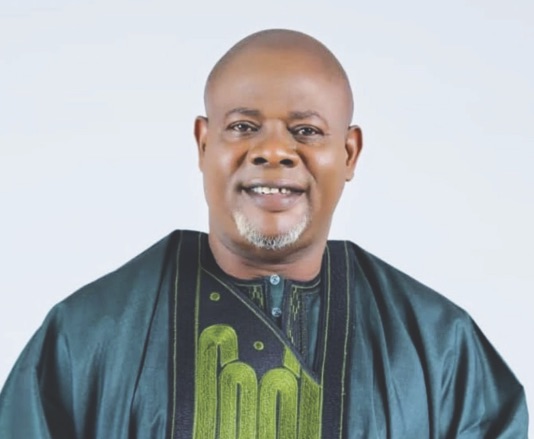
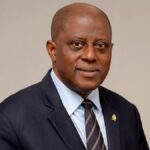

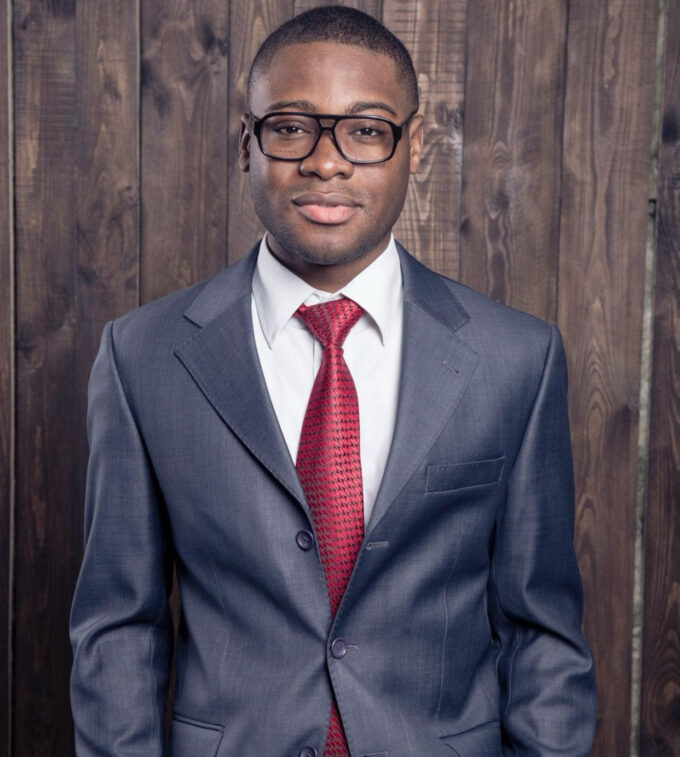




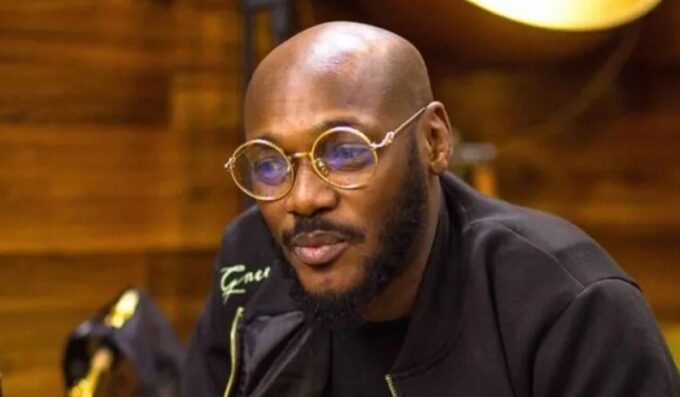
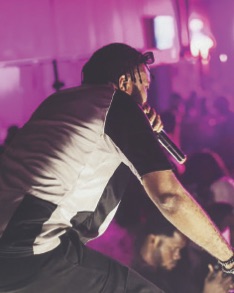





Leave a comment